Ayurvedic Treatment for Cough & Cold At Sai Ayush Ayurveda Hospitals
Niroga Ayurveda Healing ( Ayurveda Chikitsa / Treatments )
What is Cough & Cold?
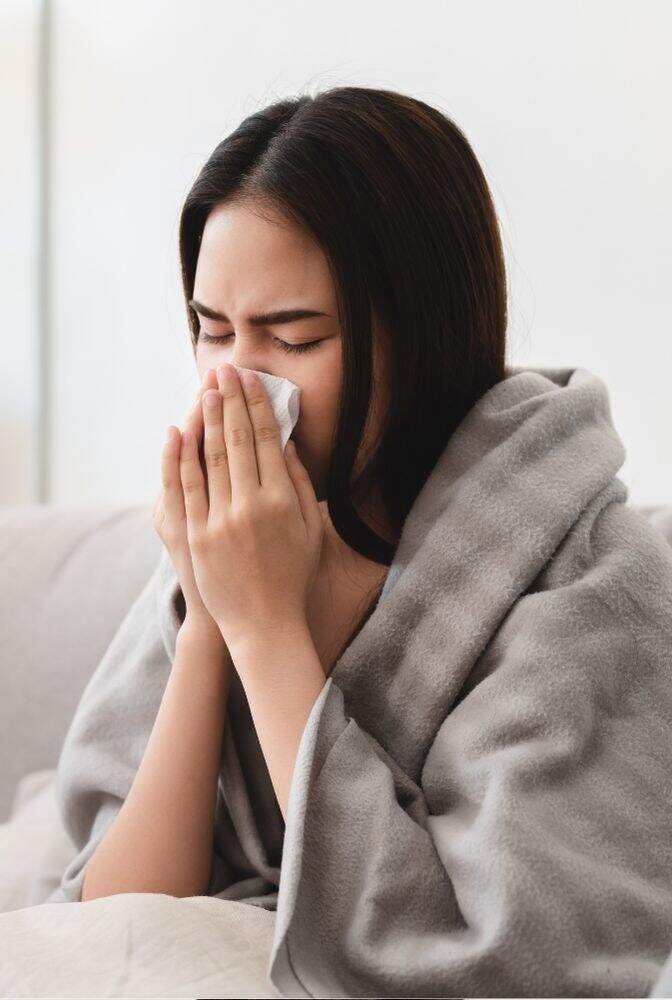
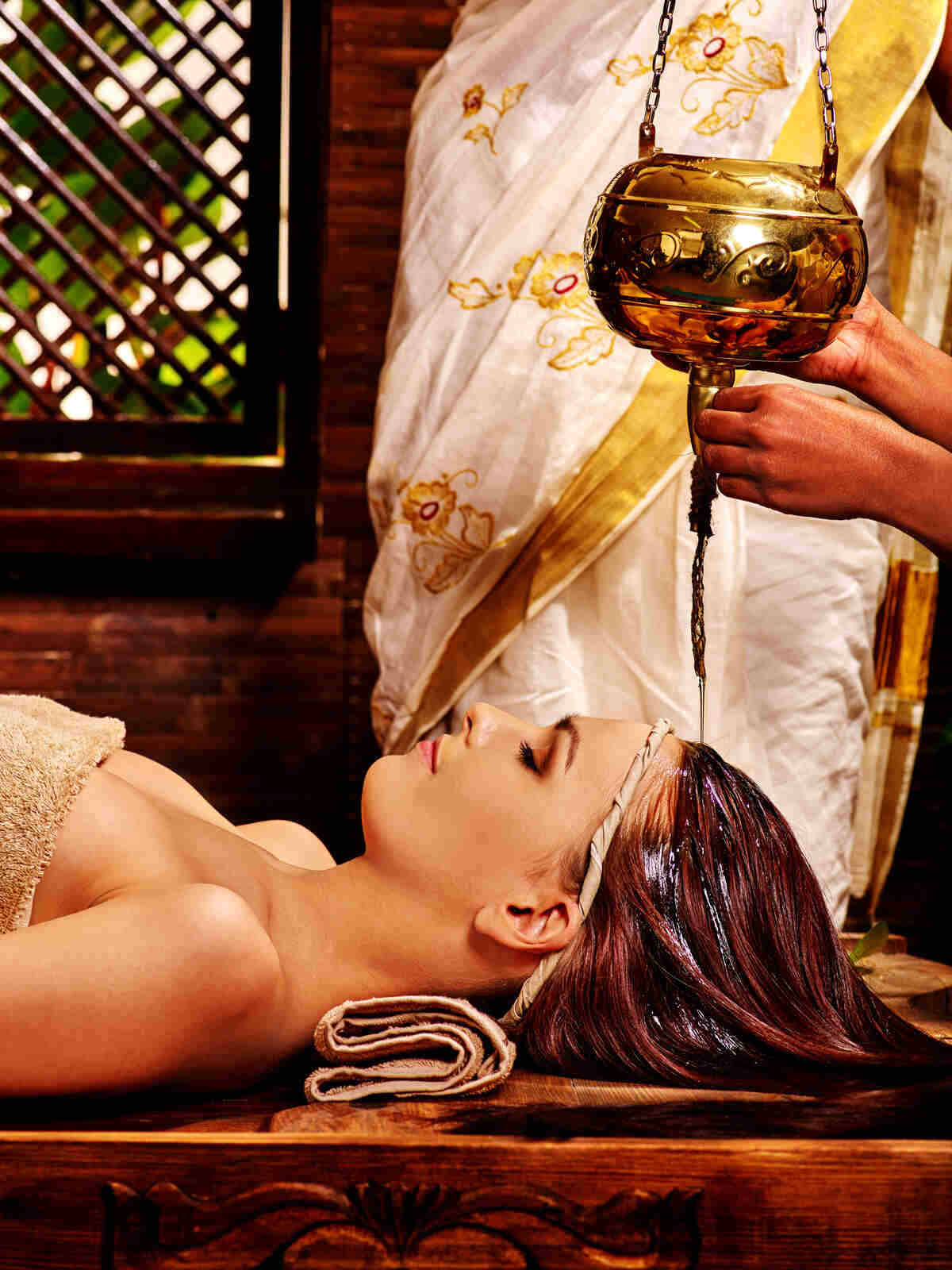
Why Choose Ayurveda for Cough & Cold?
Ayurveda, an ancient system of natural healing, offers holistic treatments that address the root cause of ailments. Ayurvedic treatments for cough and cold focus on balancing the body’s doshas (Vata, Pitta, Kapha) and enhancing immunity through natural remedies, dietary adjustments, and lifestyle changes.
Statistics: Hyderabad, India, and Globally
- Hyderabad, India: Approximately 15% of the population experiences cough and cold symptoms annually.
- Globally: Over 500 million cases of the common cold are reported each year.
Who is Frequently Affected Cough & Cold?
- Children and the elderly are more susceptible due to weaker immune systems.
- Individuals with pre-existing respiratory conditions.
- People with a compromised immune system.
Causes of Cough & Cold
- Viral infections (e.g., Rhinovirus)
- Exposure to cold weather
- Allergies
- Smoking and exposure to pollutants
- Poor nutrition and lack of rest
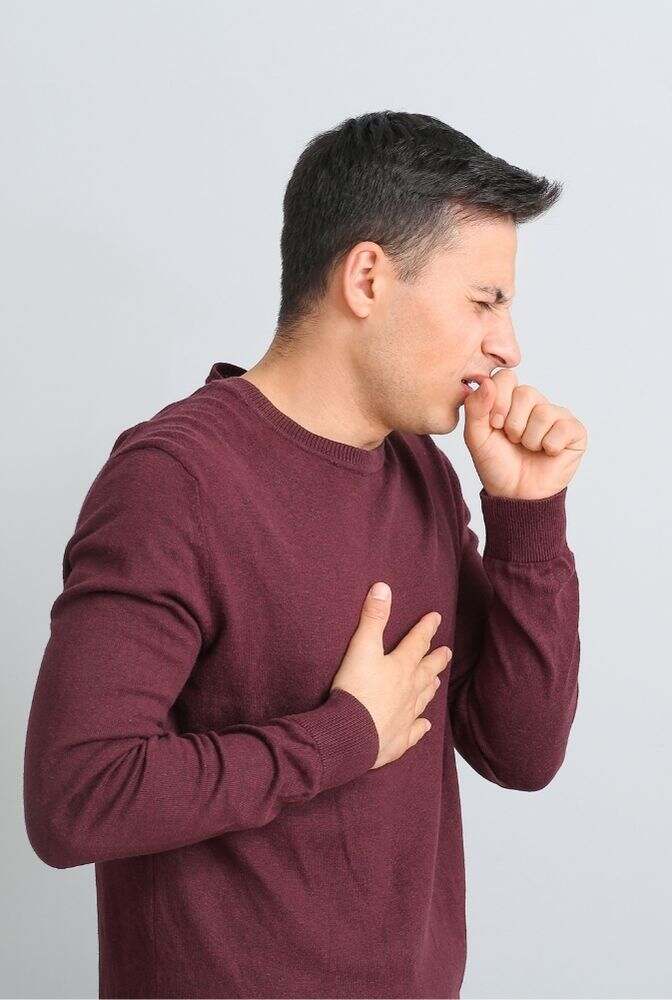
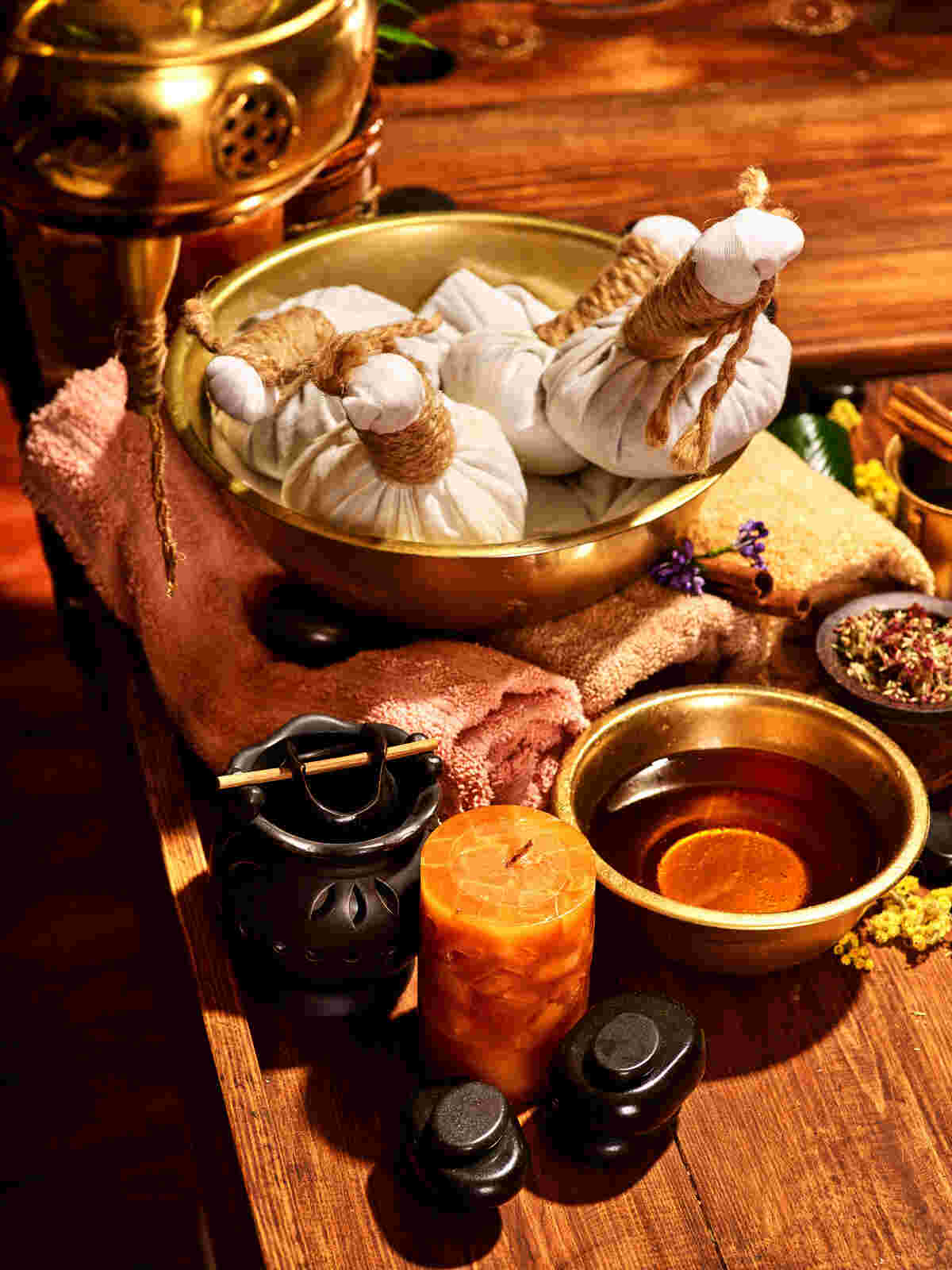
Cough & Cold Symptoms and Signs
- Runny or stuffy nose
- Sore throat
- Coughing and sneezing
- Congestion
- Headache and body aches
- Mild fever
Diagnosis of Cough & Cold
Diagnosis is typically based on the symptoms and medical history. In some cases, throat swabs or blood tests may be performed to rule out bacterial infections or other conditions.
Types of Cough & Cold
- Acute: Lasts less than three weeks
- Subacute: Lasts three to eight weeks
- Chronic: Lasts longer than eight weeks
Prevention of Cough & Cold
- Wash hands frequently
- Avoid close contact with infected individuals
- Maintain a healthy diet and regular exercise
- Get adequate rest and manage stress
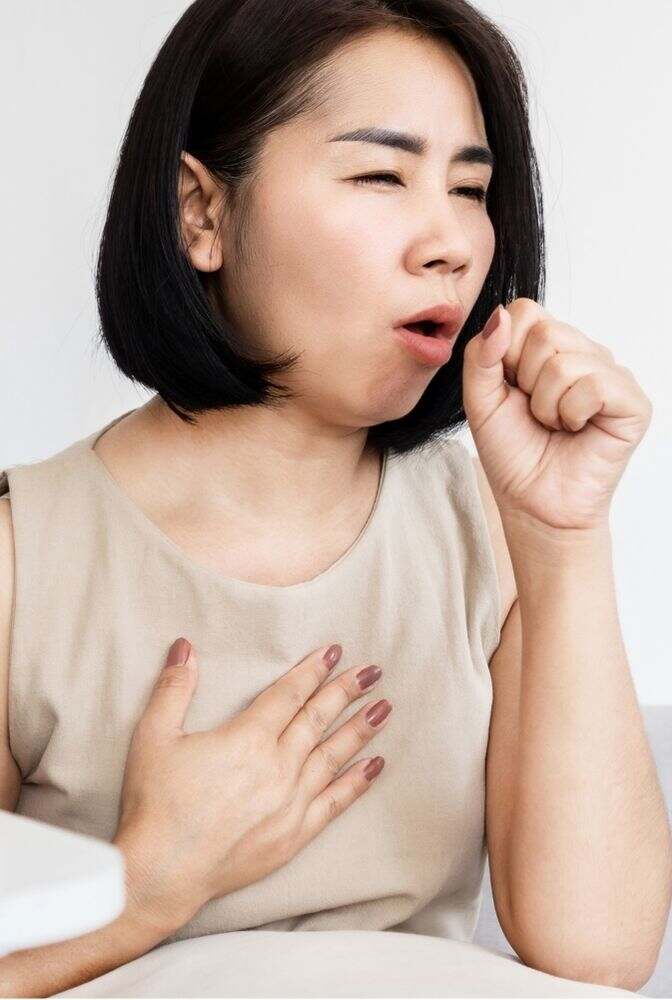

Cough & Cold Home Remedies
- Ginger Tea: Soothes the throat and reduces inflammation.
- Honey and Lemon: A natural cough suppressant.
- Steam Inhalation: Relieves nasal congestion.
- Turmeric Milk: Boosts immunity and reduces symptoms.
- Saltwater Gargle: Alleviates sore throat.
Yoga for Cough & Cold
- Pranayama (Breathing Exercises): Enhances lung capacity and reduces congestion.
- Sarvangasana (Shoulder Stand): Improves blood circulation and strengthens the immune system.
- Matsyasana (Fish Pose): Opens up the respiratory tract.
Herbal Remedies for Cough & Cold
- Tulsi (Holy Basil): Boosts immunity and fights infections.
- Mulethi (Licorice Root): Soothes the throat and reduces cough.
- Adrak (Ginger): Anti-inflammatory and antimicrobial properties.
Detailed Cough & Cold Ayurvedic Panchakarma Therapy Options at Sai Ayush Ayurveda Hospitals
Panchakarma, a cornerstone of Ayurvedic medicine, is a comprehensive detoxification and rejuvenation therapy designed to balance the body’s doshas (Vata, Pitta, and Kapha), remove toxins, and promote overall health. For treating cough and cold, Panchakarma therapies offer a natural and effective approach to relieve symptoms, strengthen the immune system, and prevent recurrences.
Nasya (Nasal Administration of Herbal Oils)
Nasya involves the administration of herbal oils or powders through the nasal passages, which helps clear congestion and sinus blockages, alleviate headaches, and improve respiratory health.
- Preparation: The patient is given a gentle facial massage with herbal oils to open the pores.
- Steam Therapy: Steam inhalation is administered to loosen mucus.
- Herbal Oil Application: Warm herbal oils are instilled into each nostril while the patient lies down with their head tilted back.
- Post-Procedure Care: The patient rests for a few minutes and may undergo a gentle head massage to enhance the benefits.
Benefits
- Clears nasal passages and sinuses
- Reduces headaches and migraines
- Enhances respiratory function
- Alleviates symptoms of cough and cold
Abhyanga (Ayurvedic Oil Massage)
Abhyanga is a full-body massage using warm herbal oils, tailored to the individual’s dosha type. This therapy promotes circulation, detoxification, and relaxation, supporting the body’s natural healing processes.
- Oil Selection: Specific herbal oils are chosen based on the patient’s dosha imbalance.
- Massage: The oil is gently massaged into the skin in rhythmic, circular motions.
- Duration: The massage typically lasts for 45 to 60 minutes.
- Post-Massage Rest: The patient rests to allow the oils to penetrate deeply and provide maximum benefits.
Benefits
- Enhances blood circulation
- Detoxifies the body by stimulating lymphatic drainage
- Strengthens the immune system
- Reduces stress and promotes relaxation
- Improves skin health
Swedana (Herbal Steam Therapy)
Swedana involves inducing sweat through steam therapy, often combined with herbal decoctions. This process helps to open up the pores, remove toxins, and relieve respiratory congestion.
- Preparation: The patient receives a light massage with herbal oils.
- Steam Therapy: The patient is exposed to steam infused with herbal decoctions in a steam chamber or using a steam canopy.
- Duration: The therapy lasts for 15 to 30 minutes.
- Post-Therapy Care: The patient rests and cools down after the session.
Benefits
- Relieves congestion and nasal blockages
- Detoxifies the body through sweating
- Enhances respiratory function
- Alleviates muscle tension and pain
- Promotes relaxation and well-being
Vamana (Therapeutic Emesis)
Vamana is a controlled vomiting therapy used to eliminate excess Kapha dosha from the body, particularly from the respiratory and digestive systems. This therapy is effective for treating chronic cough and cold symptoms associated with Kapha imbalance.
- Preparation: The patient follows a specific diet and takes herbal preparations to loosen and mobilize toxins.
- Therapy: The patient consumes a decoction that induces vomiting.
- Monitoring: The process is carefully monitored by an Ayurvedic doctor to ensure safety and effectiveness.
- Post-Therapy Care: The patient is advised to rest and follow a specific diet to aid recovery.
Benefits
- Removes excess Kapha from the respiratory tract
- Clears congestion and mucus
- Improves digestion and metabolism
- Enhances overall respiratory health
Shirodhara (Oil Pouring Therapy)
Shirodhara involves the continuous pouring of warm herbal oil on the forehead, particularly on the “third eye” area. This therapy is deeply relaxing and helps to balance the mind and body, reducing stress and promoting respiratory health.
- Preparation: The patient lies down on a comfortable bed.
- Oil Pouring: Warm herbal oil is gently poured onto the forehead in a steady stream.
- Duration: The therapy lasts for 30 to 60 minutes.
- Post-Therapy Rest: The patient rests to allow the oil to penetrate deeply.
Benefits
- Reduces stress and anxiety
- Improves sleep quality
- Enhances mental clarity and focus
- Alleviates sinus congestion and headaches
- Promotes overall well-being
Herbal Enemas (Vasti)
Vasti involves the administration of herbal decoctions or oils through the rectum. This therapy is highly effective for detoxifying the lower digestive tract and balancing Vata dosha.
- Preparation: The patient may undergo a light massage and steam therapy.
- Enema Administration: Herbal decoctions or oils are gently administered rectally.
- Duration: The patient retains the enema for a specified period, typically 15 to 30 minutes.
- Post-Therapy Care: The patient follows a specific diet and lifestyle recommendations to support the detoxification process.
Benefits
- Detoxifies the lower digestive tract
- Balances Vata dosha
- Enhances immune function
- Alleviates constipation and digestive issues
- Supports overall respiratory health
FAQs
Frequently Asked Questions
Q:What are the common symptoms of cough and cold?
A:Common symptoms include a runny or stuffy nose, sore throat, coughing, sneezing, and mild fever.
Q:How does Ayurveda treat cough and cold?
A:Ayurveda treats cough and cold by balancing the body’s doshas, using herbal remedies, dietary adjustments, and therapies like Nasya and Abhyanga.
Q:Are there any side effects of Ayurvedic treatments?
A:Ayurvedic treatments are natural and generally have no side effects when administered by a qualified practitioner.
Q:Can Ayurvedic treatment prevent future occurrences of cough and cold?
A:Yes, Ayurvedic treatments can strengthen the immune system and help prevent future occurrences by addressing the root cause.
Q:How long does it take to see results from Ayurvedic treatment for cough and cold?
A:Results can vary, but many patients experience relief within a few days to a few weeks, depending on the severity and chronicity of the condition.
Fill out this form for booking online.
Appointment
Book An Appointment
Make sure to note down the appointment date, time, and location provided by the clinic. Set reminders on your calendar or set an alarm to ensure you are punctual and do not miss your appointment.
Customer Service
+91 84668 82266
WhatsApp Now
+91 84668 82266
Subscribe Now
SaiAyush Ayurveda

